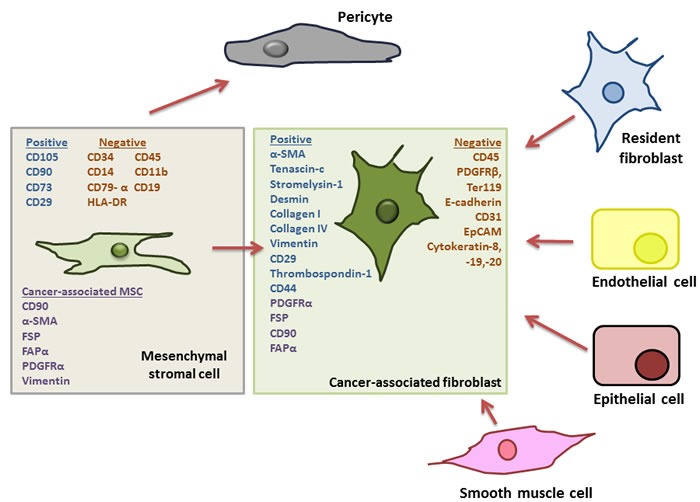Figure 1. Outline of potential progenitor cells for cancer associated fibroblasts in the tumour microenvironment.

Adapted from Cirri et al., (33). Cancer-associated fibroblasts (CAFs) represent major and important component of the tumour microenvironment (TME) and have been shown to affect tumour growth and progression. It has been suggested that these CAFs can differentiate from numerous cellular progenitors including tumour-resident fibroblasts, endothelial cells, epithelial cells and smooth muscle cells. However, it has more recently been noted that CAFs share a number of characteristics with mesenchymal stromal cells (MSCs) including the expression of platelet derived growth receptor (PDGFR)-α, and, upon isolation from a tumour MSCs have been shown to express fibroblast-activating protein (FAP) and fibroblast-specific protein (FSP) the reported hallmarks of CAFs. Furthermore, it has been suggested that “CAF” is a cell “state” rather than a specific cell type, pointing to a precursor with a plastic phenotype and robust differentiation capacity, typical of MSCs, For these reasons it has now been hypothesised that MSCs, along with their capacity to differentiate into pericytes, are also the precursors of CAFs in the TME.
